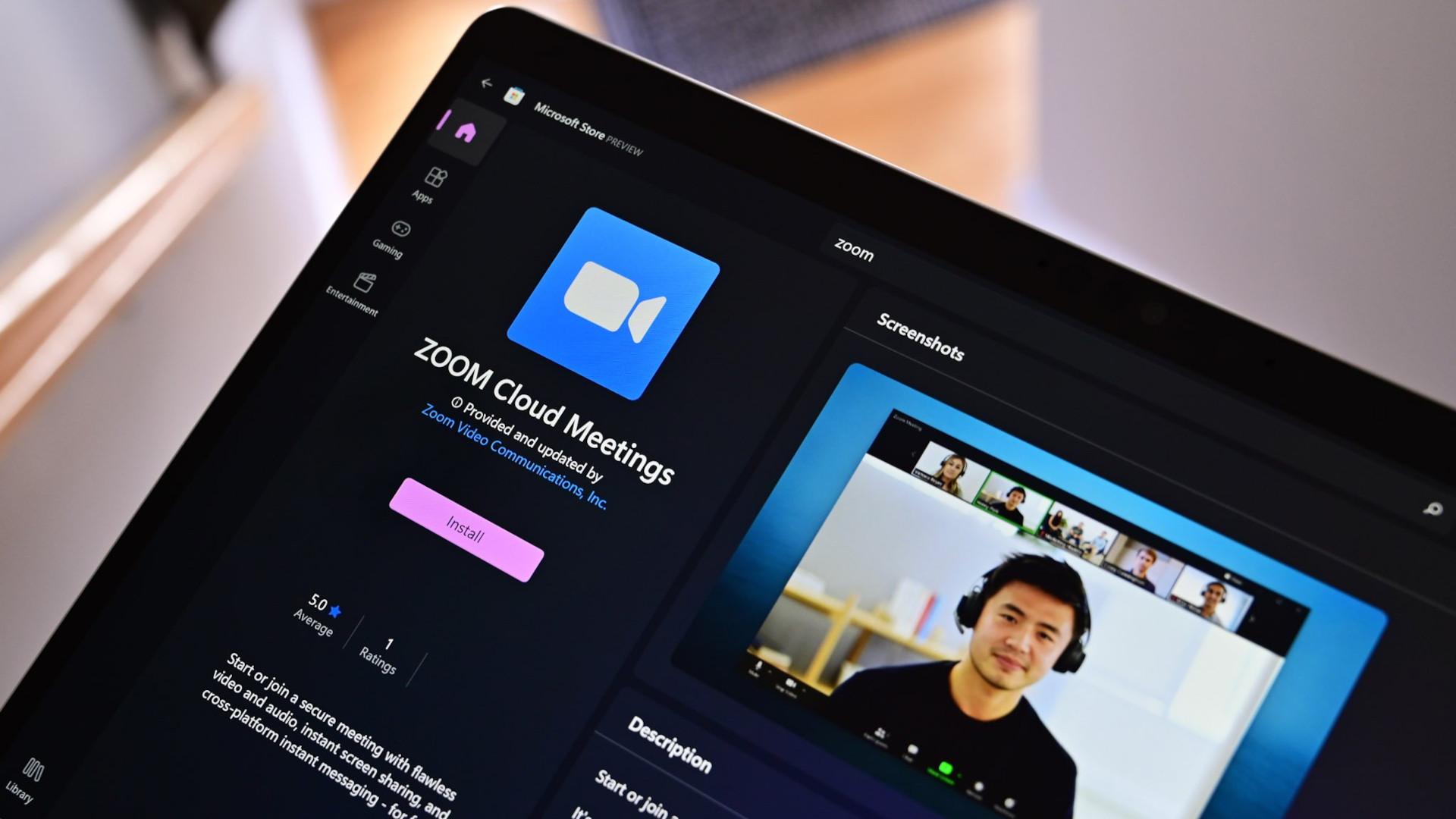Zoom looks like it's going to use you to train its AI models whether you like it or not (Update)
The future we apparently have no control over.

All the latest news, reviews, and guides for Windows and Xbox diehards.
You are now subscribed
Your newsletter sign-up was successful
What you need to know
- Zoom, like seemingly everyone else, has recently started a push into AI on its platform.
- The latest terms of service suggest the company will use your data to train these models without an apparent way to opt out.
- Given the potentially sensitive nature of data transferred through Zoom this could pose security and privacy risks, particularly in enterprise.
- Update : Zoom has since updated its terms of service to state customers will have the option to consent to data being used to train Zoom's AI models.
Update August 8, 2023 at 9:00 AM ET: Zoom updated its terms of service and emphasized that the company does "not use customer audio, video, or chat content for training our models without customer consent."
The AI revolution is here whether we like it or not, but among all the good there are certainly some less positive stories to come from it.
The latest is courtesy of Zoom. Not content with telling its own staff that apparently its own platform isn't good enough to enable remote work, the latest terms of service suggest that data shared on the platform will be used to train its AI models.
This is up there with Google wanting to scrape the entire web as a "WTF" moment for training AI models for sure. Given the rise of popularity in Zoom for business and remote work (except, it seems, if you work for Zoom), this poses some potential questions around security and data privacy.
The terms of service were highlighted by user devlogic on Mastodon.
The key parts of the terms of service are as follows:
"10.4 Customer License Grant. You agree to grant and hereby grant Zoom a perpetual, worldwide, non-exclusive, royalty-free, sublicensable, and transferable license and all other rights required or necessary to redistribute, publish, import, access, use, store, transmit, review, disclose, preserve, extract, modify, reproduce, share, use, display, copy, distribute, translate, transcribe, create derivative works, and process Customer Content and to perform all acts with respect to the Customer Content: (i) as may be necessary for Zoom to provide the Services to you, including to support the Services; (ii) for the purpose of product and service development, marketing, analytics, quality assurance, machine learning, artificial intelligence, training, testing, improvement of the Services, Software, or Zoom’s other products, services, and software, or any combination thereof; and (iii) for any other purpose relating to any use or other act permitted in accordance with Section 10.3. If you have any Proprietary Rights in or to Service Generated Data or Aggregated Anonymous Data, you hereby grant Zoom a perpetual, irrevocable, worldwide, non-exclusive, royalty-free, sublicensable, and transferable license and all other rights required or necessary to enable Zoom to exercise its rights pertaining to Service Generated Data and Aggregated Anonymous Data, as the case may be, in accordance with this Agreement."
All the latest news, reviews, and guides for Windows and Xbox diehards.
Part of the issue is there seems to be no opt-out. On ChatGPT, as an example, you can now disable the recording of your sessions and their use in training the GPT model. While the default is the opposite, for those concerned, and for users with more enterprise focus, this is a necessity.
Terms of Service are full of jargon and while there's no guarantee Zoom will be feeding video call information into AI, there's no explicit guarantee it won't. "Customer content" is a fairly broad umbrella, so it certainly seems reasonable to expect further clarity. And a way to opt-out.
It also exposes that we really should read the ToS more closely on services we use. Especially for business purposes. I'm also left wondering what the EU might think of this, given the somewhat frosty reception to AI already in parts of Europe.

Richard Devine is the Managing Editor at Windows Central with over a decade of experience. A former Project Manager and long-term tech addict, he joined Mobile Nations in 2011 and has been found in the past on Android Central as well as Windows Central. Currently, you'll find him steering the site's coverage of all manner of PC hardware and reviews. Find him on Mastodon at mstdn.social/@richdevine


